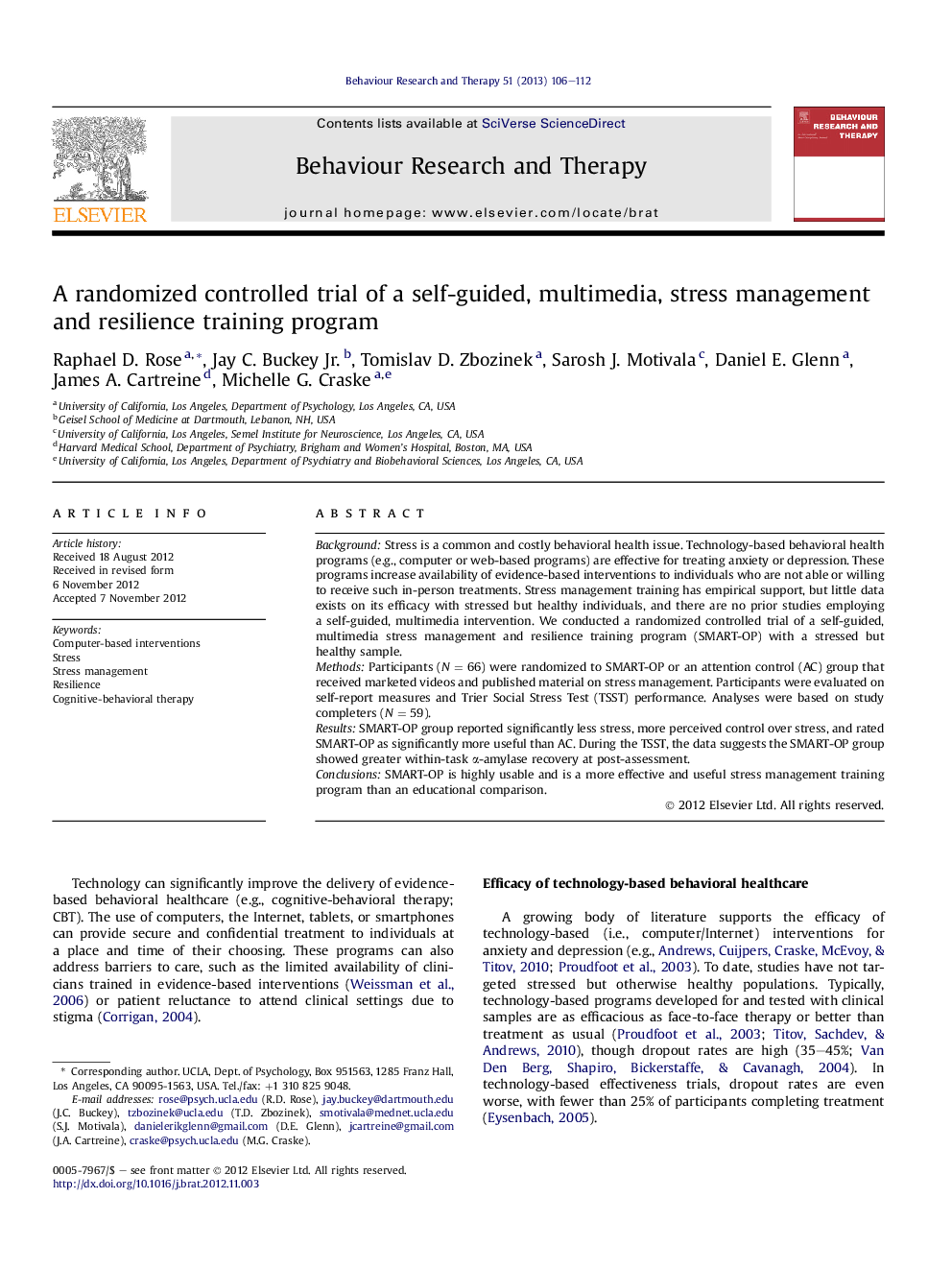| Article ID | Journal | Published Year | Pages | File Type |
|---|---|---|---|---|
| 901911 | Behaviour Research and Therapy | 2013 | 7 Pages |
BackgroundStress is a common and costly behavioral health issue. Technology-based behavioral health programs (e.g., computer or web-based programs) are effective for treating anxiety or depression. These programs increase availability of evidence-based interventions to individuals who are not able or willing to receive such in-person treatments. Stress management training has empirical support, but little data exists on its efficacy with stressed but healthy individuals, and there are no prior studies employing a self-guided, multimedia intervention. We conducted a randomized controlled trial of a self-guided, multimedia stress management and resilience training program (SMART-OP) with a stressed but healthy sample.MethodsParticipants (N = 66) were randomized to SMART-OP or an attention control (AC) group that received marketed videos and published material on stress management. Participants were evaluated on self-report measures and Trier Social Stress Test (TSST) performance. Analyses were based on study completers (N = 59).ResultsSMART-OP group reported significantly less stress, more perceived control over stress, and rated SMART-OP as significantly more useful than AC. During the TSST, the data suggests the SMART-OP group showed greater within-task α-amylase recovery at post-assessment.ConclusionsSMART-OP is highly usable and is a more effective and useful stress management training program than an educational comparison.
► We developed and evaluated a multimedia stress management training program. ► The program (SMART-OP) was compared to an attention control group. ► SMART-OP decreased perceived stress and increased perceived control over stress. ► SMART-OP was rated as more useful than attention control and very easy to use.
